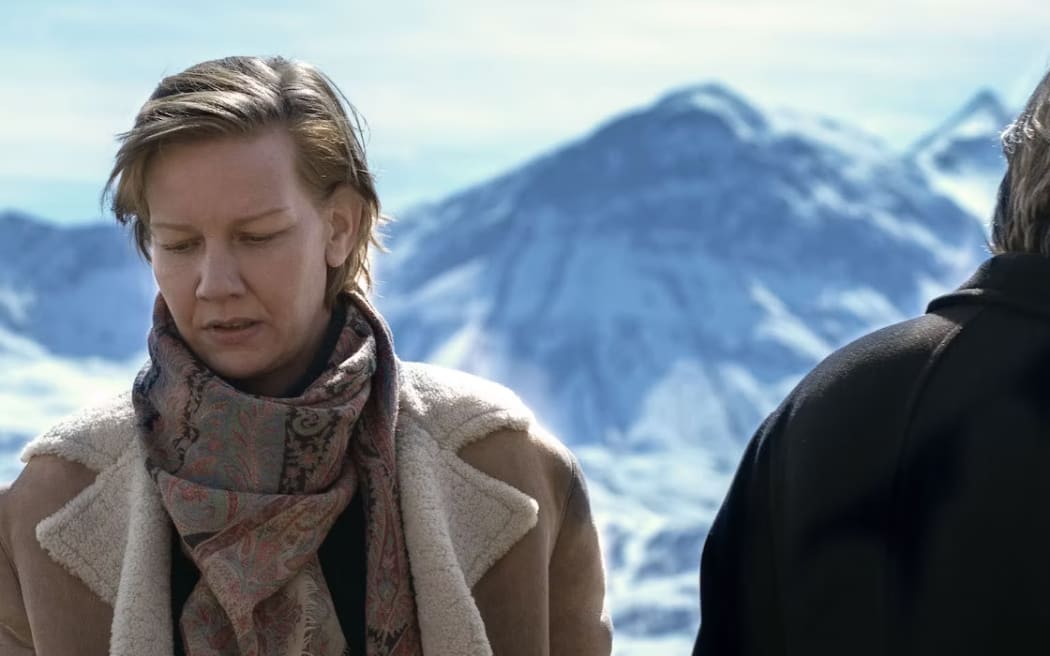For me, the description ‘winner of the Palme d’Or’ is a bit of a mixed blessing. Prestigious, certainly, but not necessarily a guarantee of a great night at the movies.
For every personal favourite like I Daniel Blake and Shoplifters, there’s an equal number of pretentious rotters like The Square and Titane, which you may remember was essentially Transformers as directed by Jean-Luc Godard.
Fortunately, this year’s Anatomy of a Fall, directed by Justine Triet, is one of the good ones.

Photo: Supplied
It was also picked to open this year’s International Film Festival.
At two and a half hours, it was a bit of a challenge for an audience looking forward to the subsequent festival party, but it was a challenge triumphantly accepted.
The film opens with novelist Sandra being interviewed at her home in the French Pyrenees. She’s German, but while she speaks French, she feels more comfortable speaking English.
The interview is curtailed when, upstairs, Sandra’s neurotic husband starts playing music too loud.
The journalist leaves, and so does Sandra and Samuel’s 11-year-old son Daniel, who knows there’s going to be a fight shortly.
Daniel is sight impaired, though he knows his way around the mountain chalet where the family live.
And he’s the one who discovers the body of his father, after he fell from the top floor. The question being did he fall or was he pushed?
The police question Daniel, and the next step, of course, is a trial. If Daniel was out, the only other person in the house at the time was Sandra.
What happened, how did it happen, why did it happen, and in the end does it matter? The only thing that matters to Sandra’s lawyer and friend Vincent is what can they prove?
Most of the film is a court-room drama, though a trial in France is rather different from what we’re used to from American or English films.
But even before we reach the courthouse, we’re intrigued by the three key figures in Anatomy of a Fall – particularly Sandra herself, played by German star Sandra Hüller.
Hüller, you may remember, played the put-upon daughter in the Oscar nominee Toni Erdmann.
Here she’s very much in control. For a start she insists on testifying in English.
Less prickly and more likable is Vincent, whose support for Sandra lends her a warmth she certainly doesn’t show with her husband.
And finally there’s the son Daniel - a blind, unreliable witness played brilliantly by young Milo Machado Graner.
Almost suspiciously brilliantly at times. His shifting evidence as the film progresses is what the trial will depend on. If he’s lying, is it to protect his mother or the reputation of his dead father?
As the title suggests, Anatomy of a Fall is a meticulous investigation – as much about the marriage of Sandra and Samuel as it is about the few minutes leading up to the fatal fall.
Hüller’s performance is fascinating – you’re reminded of the sort of difficult women played by Cate Blanchett or Tilda Swinton.
The heart of this one is that she’s a writer, a writer used to plundering her life - and the life of her family - as raw material for her novels.
Complicating matters, Sandra’s success meant that Samuel found himself trapped in the role of house-husband. He was mostly responsible for the upbringing of young Daniel, it was his idea to return to his French homeland to live.
But what Samuel wanted to do was create his own novels.
The aggressive prosecutor in the trial insists there was a violent fight, spurred by Samuel’s professional jealousy and Sandra’s selfish promiscuity.
When Sandra denies this, the prosecutor produces an unexpected ace in the hole – Samuel had recorded many of their angry arguments.
Clearly trials are conducted differently in France. Evidence seems to be produced without warning, the defendant may be grilled in the middle of another witness’s testimony, the judge plays a far more active role throughout.
And like all great courtroom dramas, the final verdict isn’t necessarily the end of the story. The trial may be the anatomy of a fall, but it’s also the analysis of a particular marriage between two real, flawed people.
In a routine Hollywood film, likeability is often the important thing in a romantic couple, but this is France. What counts in a French film is humanity, you don’t necessarily have to like them.
But as they say, tout comprendre c’est tout pardoner – when you understand it all, you can forgive everything.

